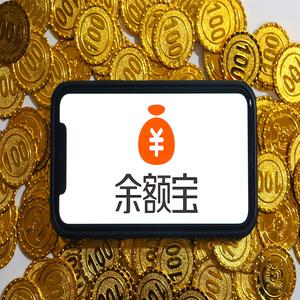In the ever-changing world of personal finance, moving from basic digital wallets like Yu'E Bao to intricate investment options such as funds represents a key shift in how people handle their money. For wealthy individuals who are used to making careful financial decisions, knowing what occurs with their finances throughout this process is not merely interesting—it’s crucial for making educated choices.

The Yu'E Bao Ecosystem: A Gateway to Finance
Yu'E Bao was initially praised as a groundbreaking financial tool, providing an easy way for millions to engage with finance. However, underneath its simple interface is a complex financial system. When users put money into Yu'E Bao, their deposits mainly go into money market funds. These funds focus on short-term, low-risk investments like government bonds, commercial papers, and bank certificates of deposit.
What attracts the general public—and even some wealthy individuals seeking quick access to funds—to Yu'E Bao is its ease of use and more consistent returns than regular savings accounts. Nevertheless, given the vast operations of Yu'E Bao, its managers have to be careful in managing the need for liquidity while ensuring investment earnings. A sudden increase in withdrawal requests could lead the fund to sell assets at less favorable prices, which might hurt overall returns.
The Shift to Funds: Unveiling Complexities
As investors look for better returns and a wider variety of investments, traditional funds bring new challenges. When people invest in mutual funds or exchange-traded funds (ETFs), their money is combined with that of others and overseen by professional fund managers. The way this combined money is invested can differ greatly based on the goals of the fund.

For instance, equity funds mainly put a large part of their money into stocks. The success of these funds depends heavily on the fluctuations of the stock market, as well as the expertise of the fund manager in choosing the right stocks and timing their investments. In contrast, bond funds concentrate on fixed-income securities, typically providing more stability but with lower returns than equity funds.Additionally, the setup of funds includes various fees and costs that can reduce returns. Management fees, administrative expenses, and sometimes sales charges all affect the fund's overall performance. Wealthy investors must scrutinize these costs carefully, since even minor percentage variations can lead to significant amounts over time.
The Role of Market Forces and Intermediaries
During the transition from Yu'E Bao to various funds, the financial landscape and market dynamics greatly impact how investors' money is managed. For instance, in the Yu'E Bao scenario, broader economic elements like central bank actions and changes in interest rates affect the returns on the money market assets linked to it. In contrast, funds are influenced by international economic conditions, changes in specific sectors, and the earnings reports from companies.Additionally, financial intermediaries such as fund management firms, brokerage companies, and custodians have significant responsibilities. Fund managers act on behalf of investors to make investment choices, while brokerage firms handle the transactions to buy and sell funds. Custodians are responsible for protecting the assets that belong to these funds. Each of these parties has distinct goals and motivations, which can sometimes be in harmony or at odds with what the investors want.
Navigating the Financial Landscape
For individuals with substantial wealth, tracking how their money moves from Yu'E Bao to various funds encompasses much more than simply monitoring returns. It's crucial to grasp the intricate relationships between financial systems, market dynamics, and the roles played by intermediaries. By achieving this understanding, they can make more informed investment decisions, evaluate risks better, and ensure their wealth management plans align with their future financial aspirations.

In the constantly changing financial landscape, being aware of how money is used, handled, and influenced is essential for preserving and increasing one’s wealth. Whether opting for the straightforward approach of Yu'E Bao or the potential benefits of funds, gaining a deeper insight into the financial operations enables wealthy investors to make choices that are both economically wise and suited to their individual situations.

Understanding Bond Yields

About investment you need to know these things

Understanding the Basics of Monetary Policy: Current Trends and Future Predictions

10 Business Loan Myths Debunked: What Every Small Business Owner Should Know in 2024

Same - Sex Partners: Unmarried Financial Strategies

Car Insurance Basics: You Need to Know

Financial Harmony: Institutionalizing Family Finances
